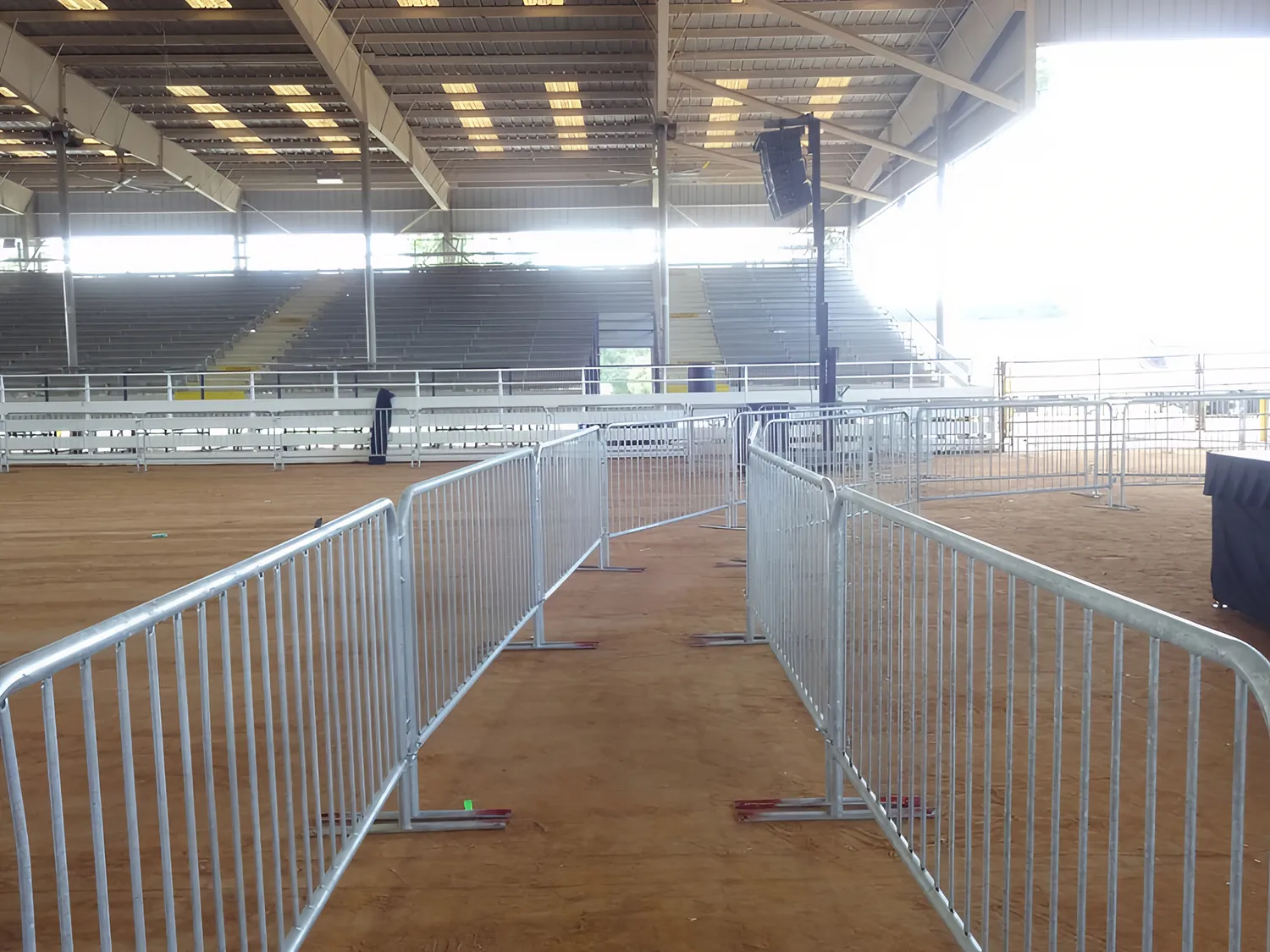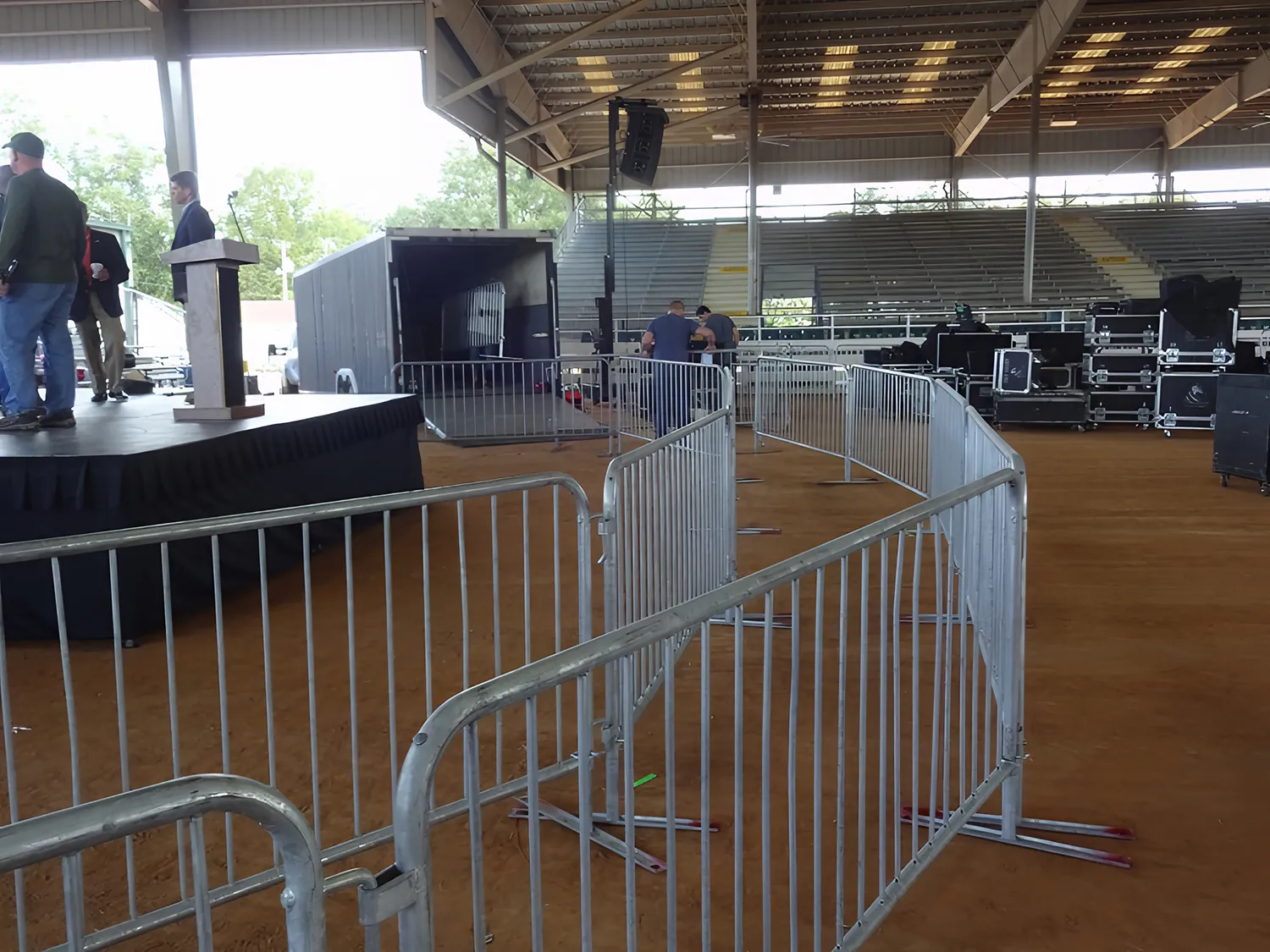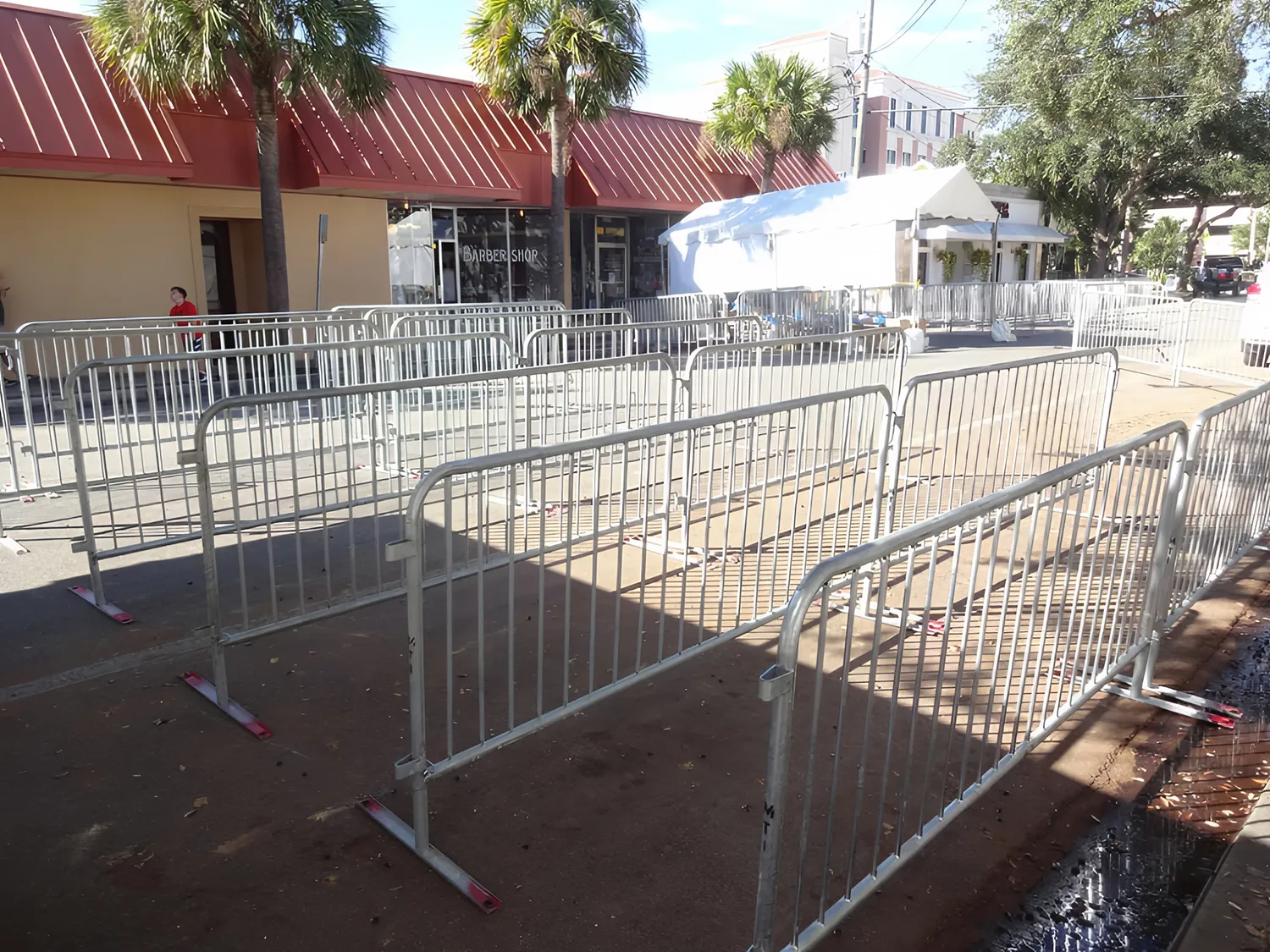Jump to Section:

1. Understanding the Fundamentals of Professional Crowd Management
When you’re planning an event in today’s complex safety environment, crowd control services become the cornerstone of creating safe, enjoyable experiences that protect your guests while ensuring your event runs smoothly from start to finish. Professional crowd management goes far beyond simply having security personnel present – it’s about implementing comprehensive strategies that anticipate, prevent, and respond to crowd dynamics that could impact safety or guest satisfaction.
The science behind effective crowd control involves understanding human behavior patterns, crowd psychology, and the physical dynamics of how people move through spaces. When groups of people gather, they create unique challenges that require specialized knowledge and professional expertise to manage effectively. Modern crowd control services combine traditional security approaches with advanced planning techniques and cutting-edge technology to create safe environments for events of all sizes.
Key principles of professional crowd management include:
- Proactive planning that anticipates potential crowd behavior and safety challenges
- Strategic positioning of personnel and barriers to guide natural crowd flow
- Real-time monitoring and assessment of crowd dynamics throughout events
- Emergency response protocols that can be implemented quickly when needed
- Communication systems that coordinate all safety personnel and event staff
2. Implementing Strategic Crowd Flow Management Techniques
Effective crowd control services begin with understanding how people naturally move through spaces and designing systems that work with these patterns rather than against them. Crowd flow management involves creating clear pathways, eliminating bottlenecks, and ensuring that guests can move safely and comfortably throughout your venue without feeling restricted or confused.
Professional crowd management teams analyze your venue layout, expected attendance patterns, and event program flow to develop comprehensive plans that guide guests naturally through your space. This includes strategic placement of barriers, signage, and personnel that create intuitive navigation while maintaining safety standards and emergency access routes.
Essential crowd flow strategies include:
- Entry and Exit Management: Controlled access points that prevent overcrowding while maintaining efficient guest processing
- Pathway Design: Clear, wide corridors that accommodate peak traffic while providing emergency evacuation routes
- Queue Management: Organized waiting systems that reduce frustration and maintain orderly guest experiences
- Capacity Monitoring: Real-time tracking of attendance levels to prevent overcrowding in specific areas
- Directional Guidance: Clear signage and personnel positioning that helps guests navigate intuitively

3. Developing Comprehensive Safety and Security Protocols
Modern crowd control services encompass far more than traditional security measures – they involve comprehensive safety protocols that protect guests from various potential hazards while maintaining the positive atmosphere essential for successful events. These protocols must be carefully balanced to provide effective protection without creating an oppressive environment that detracts from guest enjoyment.
Professional security teams undergo specialized training in crowd psychology, de-escalation techniques, and emergency response procedures. They understand how to maintain visible presence that reassures guests while remaining approachable and helpful. This balanced approach ensures that security measures enhance rather than detract from the overall event experience.
Comprehensive safety protocols include:
- Risk assessment and threat analysis specific to your event type and venue
- Personnel training in crowd psychology and de-escalation techniques
- Emergency response procedures for various scenarios and threat levels
- Communication systems that coordinate security with event staff and local authorities
- Documentation and reporting systems that track incidents and improve future planning
4. Utilizing Advanced Technology for Real-Time Monitoring
Technology has revolutionized crowd control services by providing real-time data and monitoring capabilities that enable proactive management of crowd dynamics. Modern systems can track attendance levels, identify potential problem areas, and alert management to developing situations before they become serious issues.
Advanced monitoring systems include surveillance cameras with crowd density analysis, mobile communication networks that coordinate personnel, and data analytics that help predict and prevent potential problems. These technological tools enhance human judgment rather than replacing it, providing security teams with information they need to make informed decisions quickly.
Technology applications in crowd control include:
- Surveillance Systems: High-definition cameras with crowd analysis capabilities that monitor attendance and behavior patterns
- Communication Networks: Integrated radio and mobile systems that coordinate all security and event personnel
- Access Control: Digital ticketing and entry systems that manage attendance and prevent unauthorized access
- Emergency Alert Systems: Mass notification capabilities that can communicate with guests and staff during emergencies
- Data Analytics: Crowd behavior analysis that helps predict and prevent potential safety issues
5. Customizing Solutions for Different Event Types and Scales
Different events require different approaches to crowd control services, and successful management depends on understanding the unique characteristics, risks, and requirements of each event type. Corporate conferences have different crowd dynamics than music festivals, and wedding receptions require different approaches than sporting events.
Professional crowd control companies maintain expertise across various event categories while understanding how to adapt their services to match specific needs, venue characteristics, and audience expectations. This versatility ensures optimal results regardless of your event’s size, type, or complexity.
Event-specific crowd control considerations include:
- Corporate events requiring professional, unobtrusive security that maintains business atmosphere
- Entertainment events needing dynamic crowd management that adapts to changing energy levels
- Outdoor festivals requiring weather-resistant systems and large-scale coordination
- Private celebrations needing discrete security that doesn’t interfere with intimate atmospheres
- Trade shows requiring crowd flow management that facilitates business interactions

6. Training Professional Personnel for Effective Crowd Management
The success of any crowd control services program depends heavily on the quality and training of personnel involved. Professional crowd management requires specialized skills that go far beyond traditional security training, including understanding of crowd psychology, communication techniques, and emergency response procedures.
Experienced crowd control teams undergo continuous training in de-escalation techniques, customer service skills, and emergency procedures. They understand how to maintain authority while remaining approachable, how to identify potential problems before they escalate, and how to respond appropriately to various situations that may arise during events.
Essential personnel training areas include:
- Crowd Psychology: Understanding how groups behave and what factors influence crowd dynamics
- Communication Skills: Effective interaction with guests, event staff, and emergency responders
- De-escalation Techniques: Methods for reducing tension and preventing conflicts from escalating
- Emergency Response: Procedures for handling various emergency scenarios and coordinating with authorities
- Customer Service: Maintaining positive guest relations while enforcing safety and security protocols
7. Ensuring Regulatory Compliance and Legal Requirements
Professional crowd control services must navigate complex regulatory environments that vary by location, venue type, and event scale. Compliance with local laws, fire codes, occupancy limits, and safety regulations is essential for avoiding legal issues and ensuring guest safety throughout your event.
Experienced crowd control companies maintain current knowledge of applicable regulations and work closely with local authorities to ensure all requirements are met. They understand permitting processes, inspection requirements, and documentation standards that demonstrate compliance with all applicable laws and regulations.
Regulatory compliance considerations include:
- Occupancy limits and capacity management requirements for different venue types
- Fire safety codes and emergency evacuation procedures mandated by local authorities
- Security personnel licensing and certification requirements in your jurisdiction
- Insurance requirements and liability coverage for crowd control operations
- Documentation and reporting standards for incident management and regulatory compliance
8. Developing Emergency Response and Evacuation Procedures
Even with the best planning and prevention measures, emergencies can still occur during events. Professional crowd control services include comprehensive emergency response procedures that can be implemented quickly and effectively to protect guests and minimize risks during crisis situations.
Emergency planning involves coordination with local authorities, development of evacuation routes, establishment of communication protocols, and training of all personnel in emergency procedures. These plans must be regularly updated and practiced to ensure effective implementation when needed.
Emergency response components include:
- Evacuation Planning: Multiple exit routes and procedures for safely moving large numbers of people quickly
- Communication Systems: Mass notification capabilities and coordination with emergency responders
- Medical Response: First aid capabilities and coordination with emergency medical services
- Incident Command: Clear leadership structure and decision-making protocols during emergencies
- Recovery Procedures: Plans for resuming normal operations or safely concluding events after incidents
9. Integrating Crowd Control with Overall Event Production
Effective crowd control services work seamlessly with other event production elements rather than operating in isolation. This integration ensures that safety measures enhance rather than detract from the overall event experience while supporting your event’s objectives and guest satisfaction goals.
Professional crowd control teams coordinate closely with event planners, venue management, and other vendors to ensure all elements work together harmoniously. This collaborative approach prevents conflicts between different service providers while ensuring that safety measures support rather than interfere with event programming.
Integration considerations include:
- Coordination with audio-visual teams to ensure security measures don’t interfere with technical operations
- Collaboration with catering services to manage food service areas and prevent overcrowding
- Integration with entertainment elements to provide appropriate security without disrupting performances
- Cooperation with decorating teams to ensure safety measures complement rather than conflict with design elements
- Partnership with venue management to optimize use of existing security and safety infrastructure
10. Measuring Success and Continuous Improvement
Professional crowd control services include comprehensive evaluation and improvement processes that analyze performance, identify areas for enhancement, and implement changes that improve future events. This commitment to continuous improvement ensures that safety measures become more effective over time while adapting to changing needs and circumstances.
Post-event analysis involves reviewing incident reports, gathering feedback from guests and staff, and analyzing crowd flow data to identify successful strategies and areas needing improvement. This information guides planning for future events and helps refine crowd control procedures to achieve better results.
Performance evaluation elements include:
- Incident Analysis: Review of all safety incidents and security responses to identify improvement opportunities
- Guest Feedback: Collection and analysis of attendee experiences and satisfaction with safety measures
- Staff Debriefing: Input from security personnel and event staff about operational effectiveness
- Data Analysis: Review of crowd flow patterns, capacity utilization, and system performance
- Continuous Training: Ongoing education and skill development for all crowd control personnel
Creating Safe and Successful Events Through Professional Expertise
Effective crowd control services represent a critical investment in your event’s success, guest safety, and your organization’s reputation. The right crowd management partner brings expertise, technology, and comprehensive planning that transforms potential safety challenges into well-managed aspects of successful events that guests remember for all the right reasons.
Professional crowd control goes beyond simply hiring security personnel – it involves comprehensive planning, advanced technology, trained personnel, and continuous improvement processes that ensure optimal results. When implemented correctly, crowd control measures enhance rather than detract from the overall event experience while providing the safety and security essential for successful gatherings.
Ready to Ensure Your Event’s Safety and Success?
Creating safe, successful events requires more than good intentions – it demands professional expertise, comprehensive planning, and experienced personnel who understand the complexities of crowd management. The right crowd control services provide the foundation for events that achieve their objectives while protecting guests and maintaining positive atmospheres throughout your celebration.
When you’re ready to work with experienced professionals who understand the critical importance of crowd safety, MTI Sound, Lighting, and Staging combines comprehensive crowd control expertise with decades of event production experience to deliver safety solutions that protect your guests while supporting all your event objectives. Their professional approach ensures every aspect of crowd management contributes to your event’s success.



